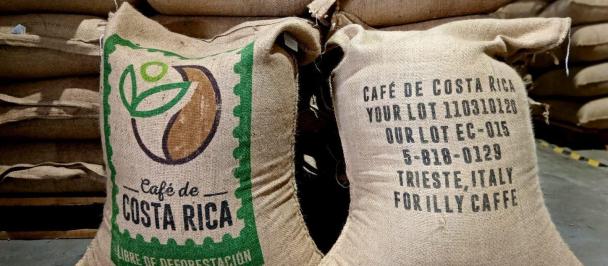A Food Smart Future: from Recovery to Resilience in the Age of Crisis
October 14, 2022

As we commemorate World Food Day, the global food crisis is being magnified by the war in Ukraine. The UN Food and Agriculture Organisation (FAO) predicts that more than one third of Ukraine’s crops and agricultural land will not be harvested or cultivated this year. This is the fourth global food crisis in 15 years – as we recover from this crisis, we must put solutions in place to prevent the next one. UNDP's Food and Agricultural Commodity Systems team is putting its weight behind this medium and long term thinking.
The UN-backed Black Sea Grain Initiative has so far freed 6.4 million metric tons of Ukrainian grain for export, much of it to Africa which relies on such supplies. Secretary-General Antonio Guterres said "getting more food and fertilizer out of Ukraine and Russia is crucial to further calm commodity markets and lower prices". If further crises are on the horizon, what can we do to prevent them? And if Africa is at the mercy of global export shortages, how can we support the continent to increase its ability to meet its food needs?
The shocks of the last three years have exposed many weaknesses in food systems. UNDP’s Food and Agricultural Commodity Systems Practice (FACS) aims to build food and agricultural commodity systems that are resilient, equitable and sustainable. Aligned with the recommendations of the UN Global Crisis Response Group, the system now needs to move from recovery to resilience and transformation.
Resilience was the first weakness to emerge. In March 2022, restricted supply pushed the World Food Programme’s Food Price Index to record levels. With harvests concentrated in just 6 breadbaskets, the chance of multiple failures is increasing as the effects of climate change combine with the continued threat of COVID-19 and further conflicts. We need to urgently diversify our food production and its geographic concentration. Strengthening local food supply chains and markets is one way to build resilience.
Equity was exposed when food and commodity prices rocketed, leading to food export bans and fears of social unrest. We must resolve the deep-rooted inequalities that undermine just food systems, ensuring the most vulnerable have access to nutritious and culturally-appropriate food at all times.
Sustainability was highlighted as the effects of the conflict, combined with multiple droughts and heatwaves, challenge the sustainable development focus of agriculture in the run up to the 2030 Sustainable Development Goals. We need to focus on building regenerative, inclusive, and climate-resilient agricultural practices for long-term sustainability.
UNDP is developing a comprehensive Food Systems Resilience and Transformation strategy to meet these challenges. The initial proposals are that UNDP should develop and implement systemic solutions in three dimensions: first, laying out systemic governance, programs and policies that promote multi-stakeholder dialogue, effective collaborative action and co-operation; secondly, dealing with structural drivers, the food system challenges of environment, climate change, poverty and inequality, gender and energy; and thirdly, focusing on food supply chains at every stage – production, processing, distribution and consumption – to make them diversified, sustainable and inclusive.
“UNDP’s whole-of-government approach, its expertise in working inter-ministerially, is an amazing opportunity to promote the systemic three-dimensional perspective that we need”Jose Luis Chicoma, former Minister of Production in Peru.
Building Africa’s resilience to food systems shocks, thereby lessening its dependence on imports from Ukraine and Russia, will be a key objective for the transformation. Supporting this will be the FAO/UNDP SCALA programme – Scaling Up Climate Ambition on Land Use and Agriculture. Working in 12 countries in Africa, Asia and Latin America, SCALA operates through countries’ National Adaptation Plans to boost their Nationally Determined Contributions to the 2015 Paris Climate Agreement. In Africa, SCALA works in Egypt (which used to source 82% of its grain from Ukraine and Russia), Cote d’Ivoire, Senegal, Uganda and Ethiopia, where the ambition is for a 68.8% reduction in greenhouse gases (compared with Business as Usual) by 2030.
With the UN Climate Change Conference, or COP27, only a matter of weeks away, the COP27 Presidency Egypt has dedicated a whole day to adaptation and agriculture, highlighting the importance of food systems in meeting the Paris Agreement targets.
“The current cocktail of crises presents a unique opportunity to adopt a systemic approach to addressing structural flaws in global food systems. Linking short term recovery to long-term transformation, changing policies on systemic issues, creating green jobs and supporting countries to diversify their domestic food production are just some of the issues we must tackle. Now is the time to fix our broken food systems”.Andrew Bovarnick, UNDP’s Global Head of FACS
Want to know more? Follow us on LinkedIn and Twitter.
Subscribe to out Newsletter to receive exclusive content and news.

 Locations
Locations



